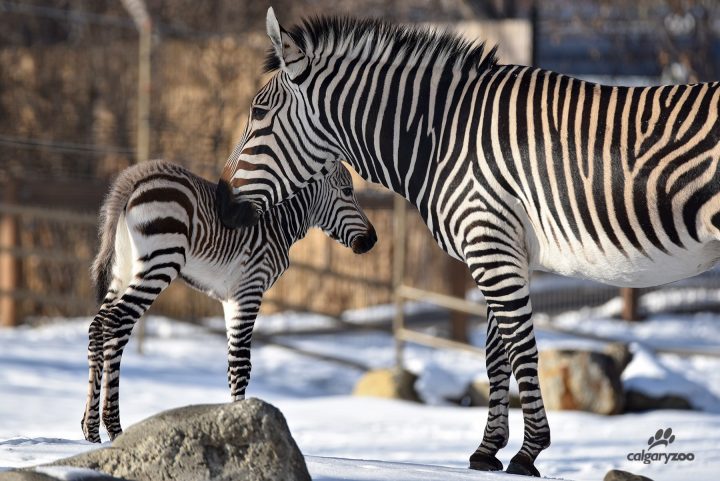The Calgary Zoo is struggling to keep up with its many animals’ appetites during the COVID-19 pandemic, as restrictions forced the facility to close its doors a month ago, and it’s hoping the public can help.

The zoo hasn’t had any visitors through its gates since March 16, a day after the City of Calgary declared a state of local emergency, and that means a significant shortfall in cashflow to cover the $550,000/month bill to feed the animals.
“Being closed is quite a struggle, the Calgary Zoo depends on its spring and summer months for the lion share of our revenue,” CEO Gregr Royer said.
The $550,000 doesn’t account for the costs of running the zoo facilities, security, administrative costs and building care.
“We’re going through about $1 million a month, total cost,” Royer said, adding that any help from the community will help the zoo better weather the storm.
“If we stay closed until September, first we could lose about $27 million worth of revenue and we will miss seeing about 850,000 people,” Royer said.
The zoo’s annual income is about $52 million, so that loss would be “significant,” Royer said.

Get weekly health news
“I’d say we’d lose most of it in admission, a lesser amount with food,” Royer said.
“Not having people at the zoo is really, really difficult for us.”
Staff focused on animal care
Nearly two weeks after the temporary closure took effect, the zoo laid off about 60 per cent of its workforce, 253 positions, as a way to keep costs low.
Royer said the “close to bare bones” staff that is working is focusing on animal care as well as care and security of the facilities.
“If things got tougher, if this thing looked like it was going to last longer, then you have to start thinking about customizing, you start having to make difficult decisions about exactly how we will operate the facility,” he said.
“The one area that we can’t make any compromise on is care of the animals. There’s no option — there’s no, ‘We’ll only feed them every second day.’ We’ll take the best possible care of the animals, no matter what.”
The zoo said while it is struggling, it won’t be sending any animals to other facilities. At most, to reduce costs, the zoo would reduce its sage grouse breeding program which sees the animals released into the wild.
Pricey pandas
Royer said the most expensive animals the zoo cares for are the two giant pandas, Er Shun and Da Mao, because their food — bamboo — has to be imported.
“We brought it in from China for a very long time, we are no longer able to bring it in from China so we are now bringing it in from Vancouver Island and San Diego. We have had significant challenges.”
Royer said the situation is discouraging, but not enough to keep them from showing up every day to help the zoo animals.
“We have a mission to help wildlife and it’s just constantly inspiring and you can’t be too down when you’re constantly inspired,” he said.
Anyone wanting to donate to the zoo can do so either through the Daily Dose initiative or through the Calgary Zoo website — they can’t go to the zoo itself. People can also buy a gift card for a membership which will activate when the facility reopens to the public.






Comments